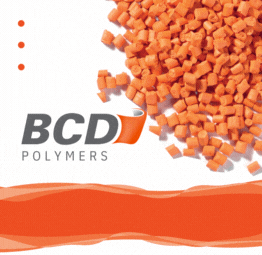The technical center and application laboratory already features a Sacmi system for crown corks, the tie-bar-less Engel Victory 120 tech for injection molding, a semi-automatic filling system, an industrial capping system, an autoclave for sterilization, and a system for tunnel pasteurization. With the new Sacmi and the existing machines, the compounds can be introduced directly into the closures and then tested in the application laboratory. This means that modifications or optimizations can be implemented quickly and customers can be offered tailored products. This saves time and plant capacity at Actega and at the customers’.
The market for PVC-free seals has developed rapidly in recent years and demand continues to increase – particularly in the area of baby food. This is also reflected in the investments by seal manufacturers in new machine technology. In contrast to past PVC technology in which liquid PVC plastisols had to be injected into the caps and cured at high temperatures, TPE (thermoplastic elastomer) technology entails melting the granulate by extrusion and applying it to the cap. Now the granulate only needs to be formed but no longer hardened. On the one hand, this makes it possible to do away with gas-fired drying ovens, which saves energy and production costs and reduces the CO2 footprint. On the other hand, new equipment is needed to process the PROVALIN® and ACTGreen® PROVALIN® compounds. These machines are currently offered by the companies Alfons Haar and Sacmi and are available to all customers who have opted for PVC-free closures. Extensive capacities have meanwhile been developed and major investments are still being made by the closure manufacturers.
The majority of these machines has been supplied by Sacmi, which is why Actega has opted to invest in one. One of the features of the Sacmi PMA24L is that it is available in two different configurations. One has a maximum output of 1000 cpm (caps per minute) and the other supplies 500 cpm. A special kit makes it possible for manufacturers to upgrade from 500 cpm to 1000 cpm. The machine can process closures of 38 to 82 mm. By processing PVC-free compounds, the highest sealing performance and full protection of the organoleptic properties of the filling material can be achieved.
The engineers from the Technical Service can test, adjust and optimize processing of the compounds. In addition, optimized processing instructions – with regard to temperature or induction performance, for example – can be determined and passed on to the customers, so that smooth processing is also guaranteed there.
If necessary, the compounds can be modified – to optimize opening values, adhesion to the adhesive varnish, or the sealing process. No customer capacities need to be used for this.
Thanks to the machinery available, all steps from compound and closure production to filling, capping and post-treatment (sterilization, pasteurization) can be mapped, controlled and optimally adapted. This is why Actega knows exactly how the closures perform at the closure manufacturer and the filler.
New products can be developed and examined directly in the seal.
The new machine offers increased flexibility and speed. For example, several samples can be tested in parallel and the best variant selected. This means that the time from development – in line with customer requirements – to commercialization can be shortened by several months.
For customers, this results in fewer tests and modifications of their own, as they have already been tested and checked at Acetga. As a result, the use of plant capacities can be reduced. And the product qualification period is significantly shorter.


